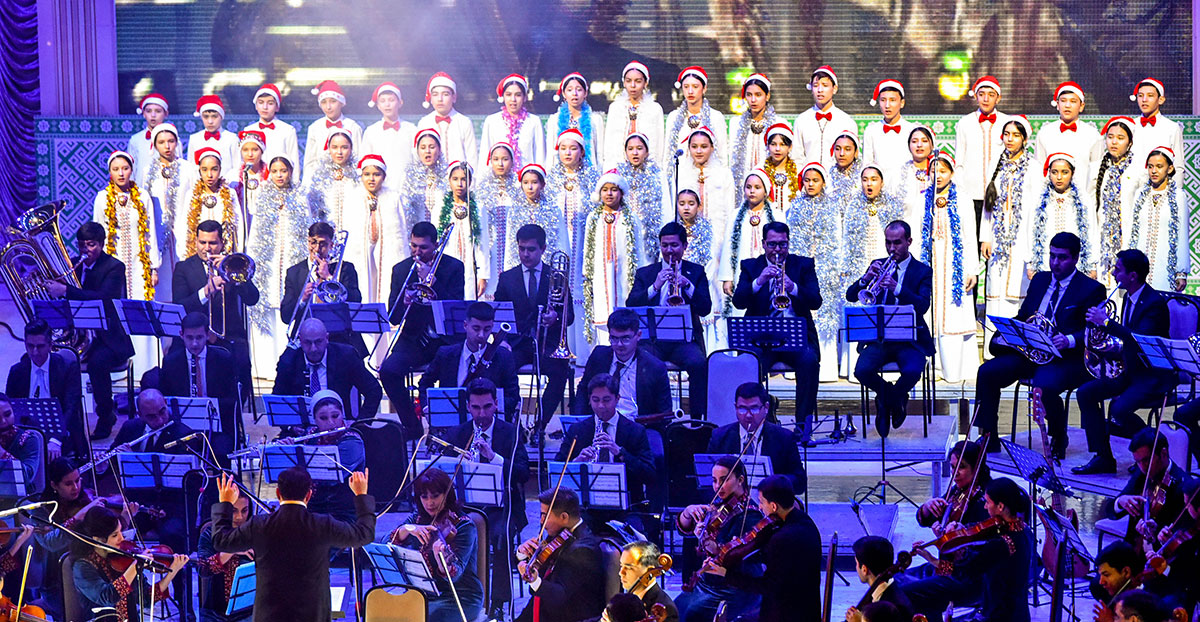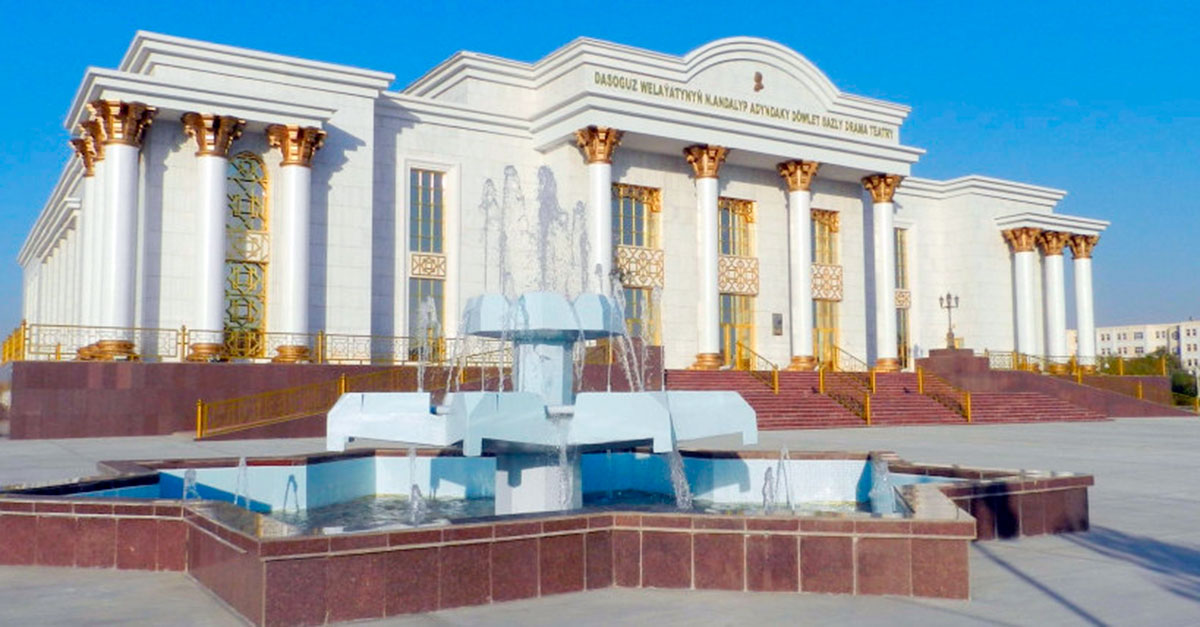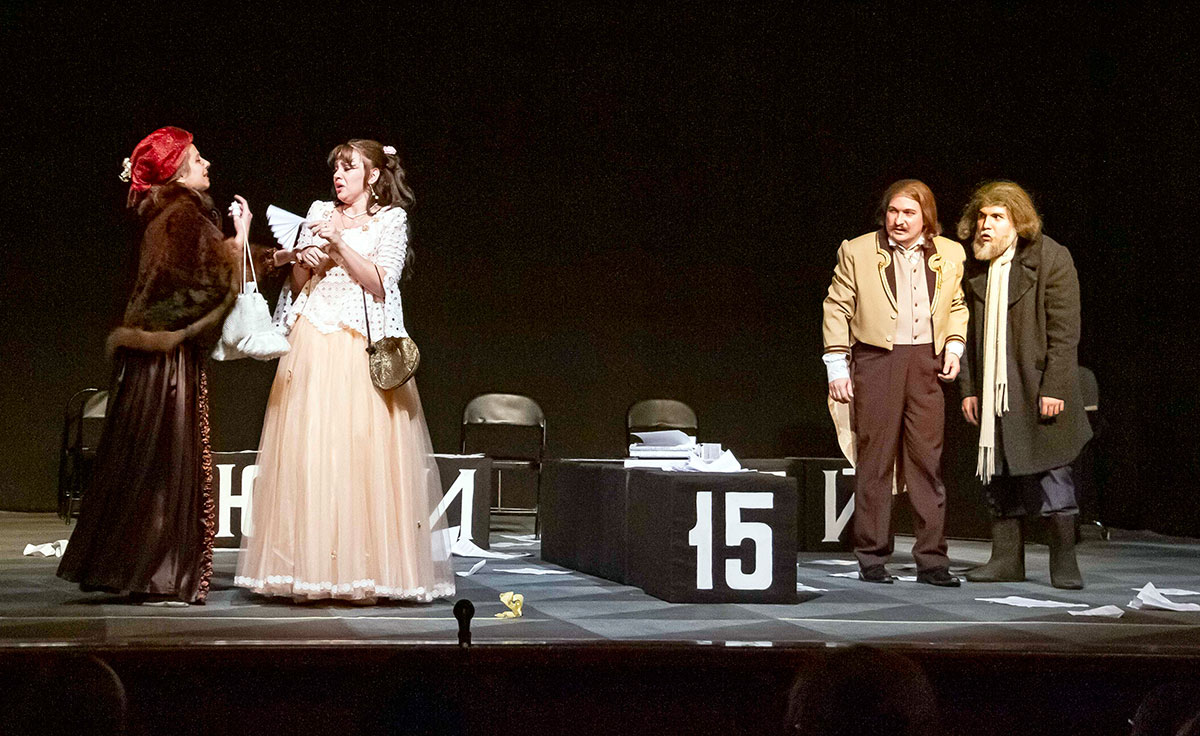These days, an exhibition of paintings by Iranian masters is taking place at the State Academy of Arts of Turkmenistan.
The educational institution was visited by the miniature artist Sayede Hashemi and the gilder Najmeh Hosseini, who, within the framework of cultural and educational cooperation between Turkmenistan and Iran, conduct master classes and share their knowledge and experience with young artists, opening the world of Persian painting to them.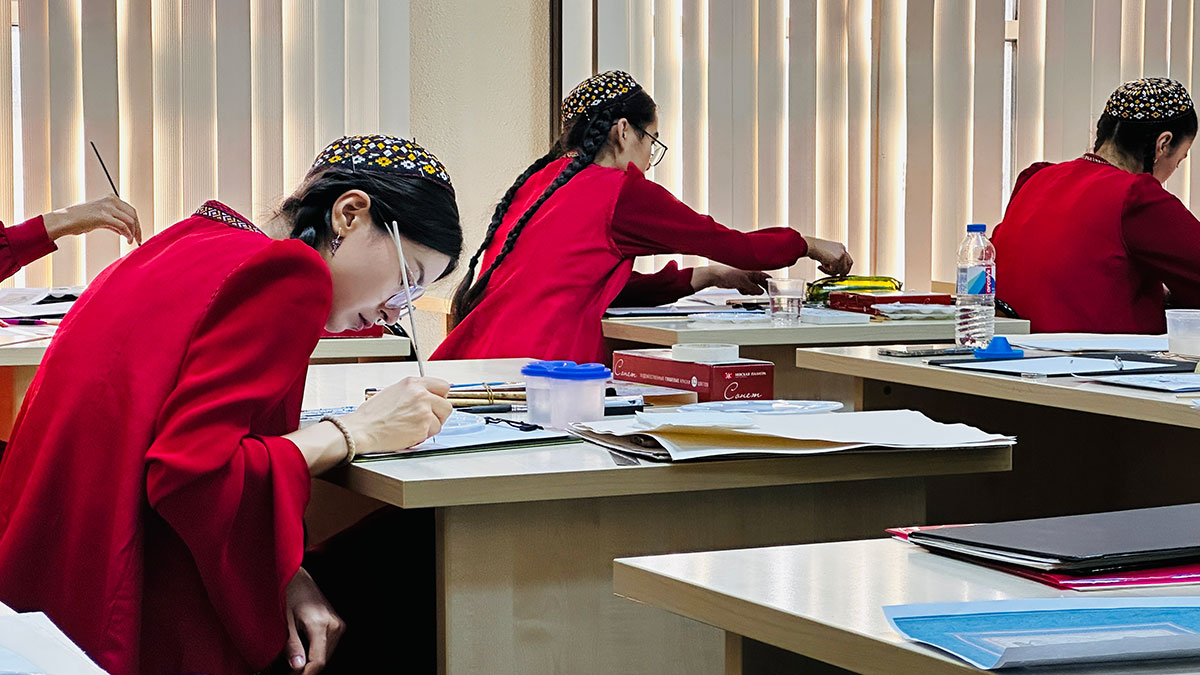
During the classes, students are introduced to various techniques and materials used by artists throughout the centuries. The training includes theoretical and practical classes, during which students can apply the knowledge they have gained. Upon completion of the training, an exhibition of student work will be organized.
Iranian miniature painting art is listed as a UNESCO World Heritage Site as the oldest and most unique art that not only reflects Iran's rich cultural heritage but also plays a significant role in the history of art in the Middle East.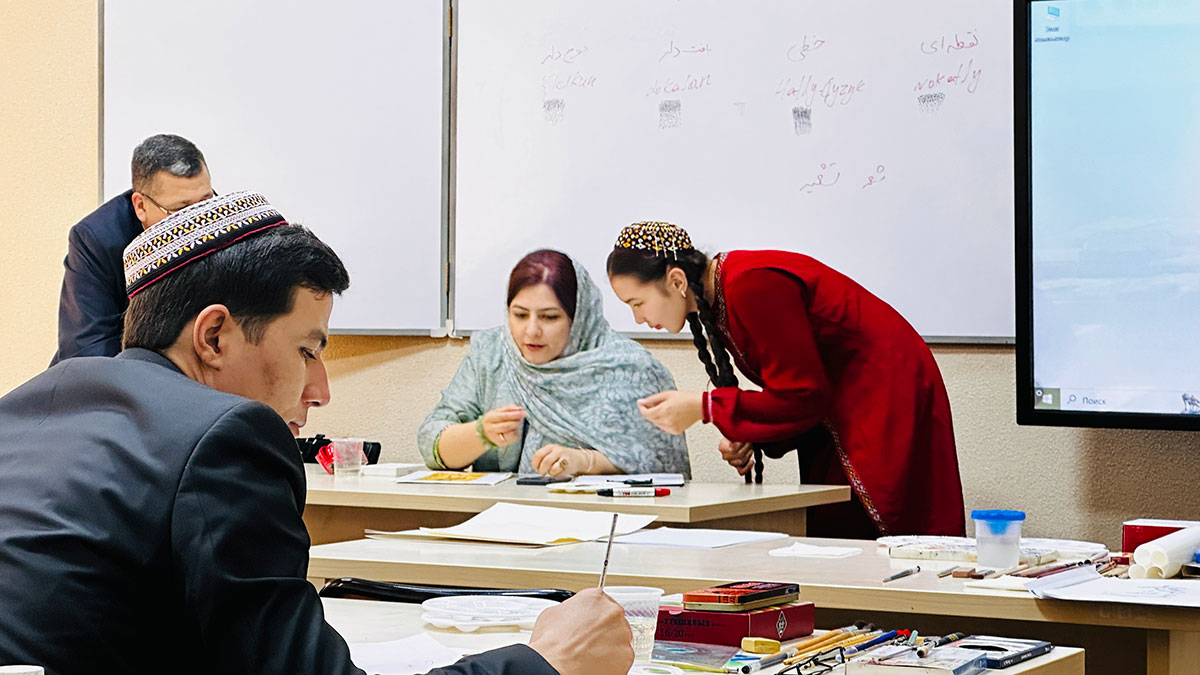
For a deep understanding of the art of miniature painting, it is impossible to do without knowledge of Iranian literature, poetry and mystical worldview.
“I studied the art of gilding in Isfahan, a city in central Iran famous for its Persian architecture,” says Najmeh Hosseini. — There are many buildings where gilding was used in their decoration. This is one of the most unique forms of art, requiring constant study, development and implementation of new ideas. It is difficult to learn, but very interesting. Each work in this technique can be completed in a few days or even weeks.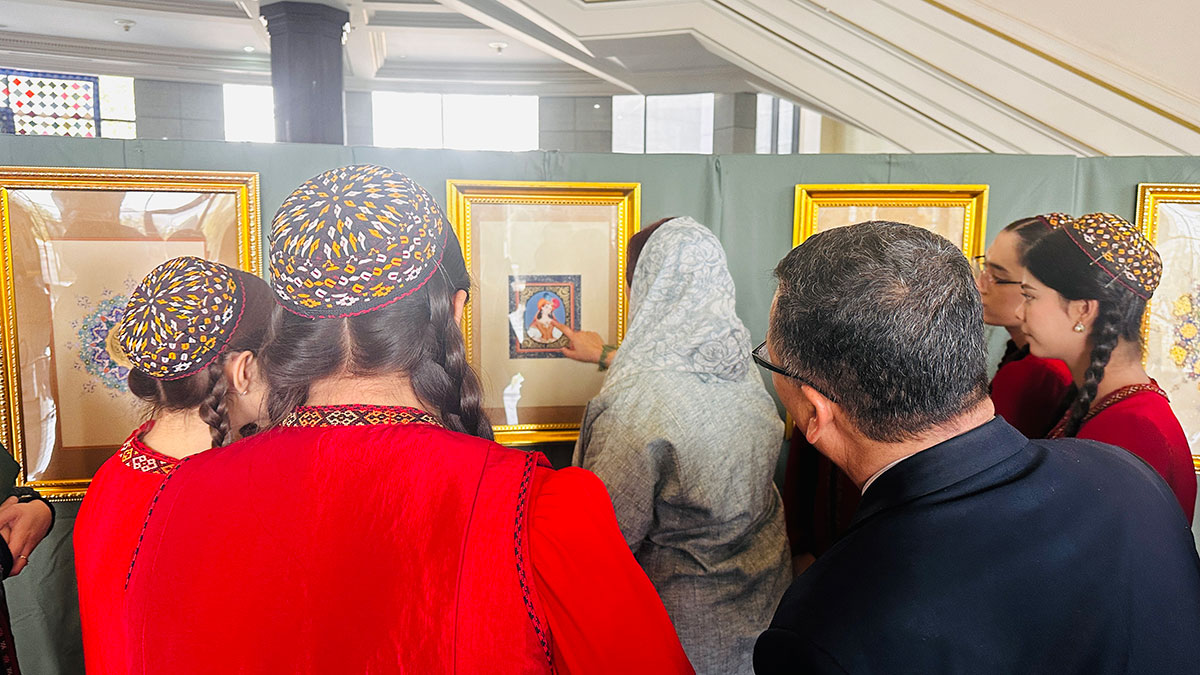
According to art historian Ayjan Kadyrova, the State Academy of Arts of Turkmenistan studies key areas of form-making art, including miniatures, graphics and calligraphy.
– The art of miniature, known since ancient times, continues to be relevant and in demand today, – says the art historian. This area of creativity, which arose in the Middle Ages, is mainly associated with book design and is carried out in harmony with such types of art as calligraphy, which require refined and high skill.
Master classes conducted by Iranian specialists enrich the students’ knowledge, inspiring them to create their own works, which become a kind of bridge between the past and the present, between Turkmenistan and Iran, and also open up new horizons in understanding the Persian artistic tradition.






